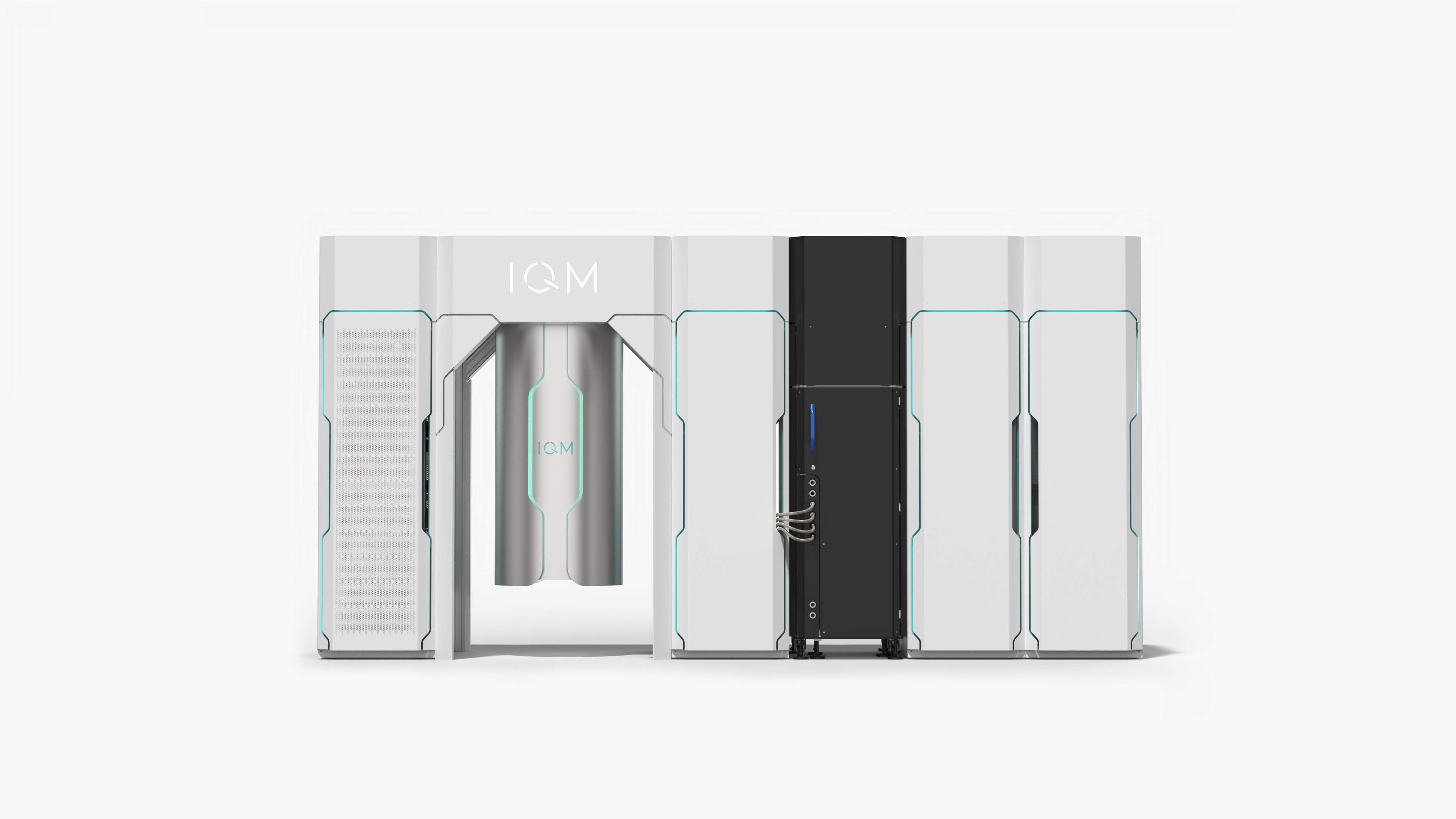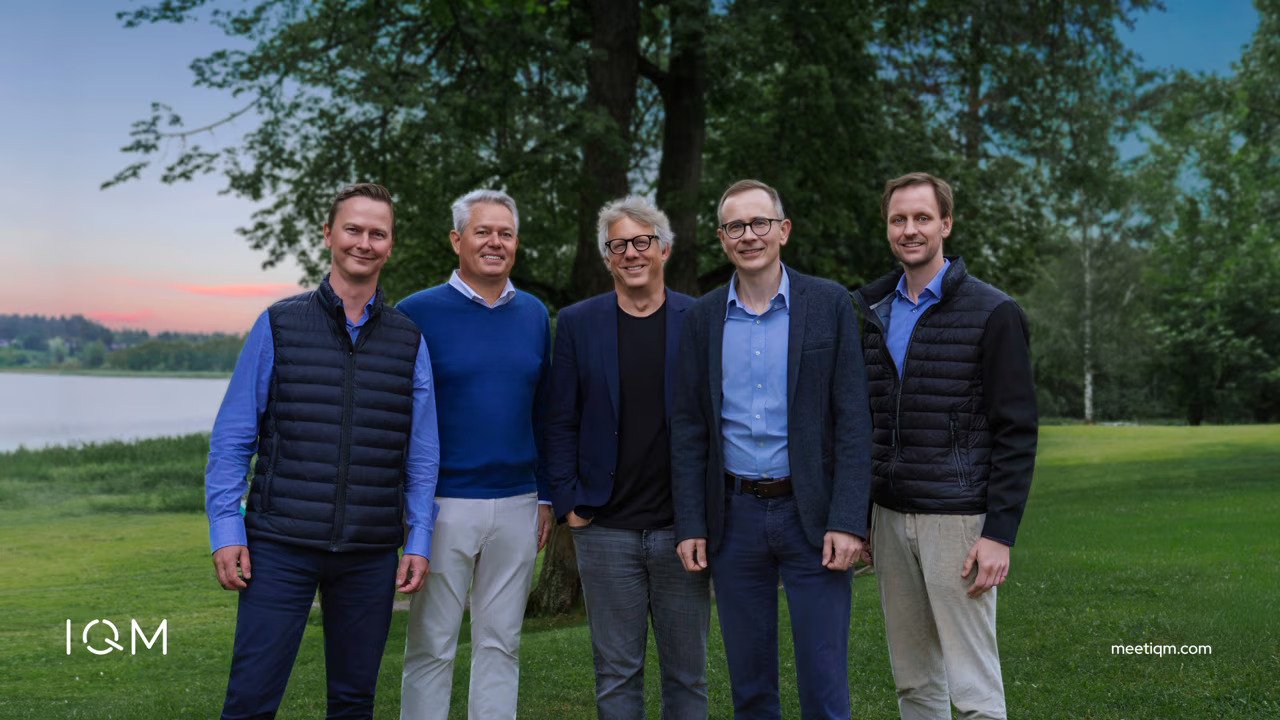Today IQM Quantum Computers announced that it has raised $320 million in venture capital, the largest Series B raise ever in the quantum space, both in Europe and outside of the US. It brings the company’s total funding raised to date to $600 million.
IQM is a global leader in superconducting quantum computers. IQM provides both on-premises full-stack quantum computers and a cloud platform to access its computers.
I spoke to Dr Jan Goetz, co-founder and co-CEO of IQM Quantum Computers, to find out more.
IQM scales quantum with 13+ systems sold, enterprise cloud traction, and hardware edge
IQM Quantum Computers sells on-premises superconducting quantum computers, which according to Goertz is currently the most mature and scalable approach. It’s chip-based and built on semiconductor wafers, which have proven to scale over decades—just think of Moore’s Law.
“Our key differentiator is error correction. We’ve developed a path that’s about ten times more hardware-efficient than surface codes used by others like Google.
We’ve also invested heavily in product maturity. Our systems are standalone, self-calibrated machines designed to fit seamlessly into supercomputing centres with a standard 19-inch rack footprint. That makes them very competitive globally.”
The company has sold over 13 quantum computing systems. Most of the on-premise systems it sells go to scientific computing centres where they are integrated into supercomputers and workflows, supporting fundamental physics simulations and performance optimisation.

Alongside hardware, IQM offers cloud access through its Resonance platform, which lets users run algorithms on exclusive processors like Crystal 20 and Star 24 using familiar SDKs such as Qiskit and Cirq. On the enterprise side, adoption is growing according to Goertz — mainly via the cloud.
“Our Munich quantum data centre hosts six machines, and we see strong demand from pharma, logistics, finance, and security. Companies are building teams, developing IP, and testing use cases to become ‘quantum ready.’
That way, when machines become more powerful, they’re prepared to use them effectively.”
Customers also buy services and support packages, typically 10–20 per cent of system costs, covering maintenance, training, and integration with high-performance computing environments.
A Commercial mindset from Day One
IQM stands out for cracking the transition from research-heavy to commercial. Goetz attributes this success to mindset:
"From day one, even when almost everyone at IQM was a physicist, we said: we’re going to sell what we build. People thought we were crazy trying to sell a five-qubit machine — but we did it anyway.
Those early sales taught us how to define products, set pricing, manage delivery, and incorporate customer feedback into our roadmap."
This commercialisation mindset, combined with European programs like EuroHPC — which integrates quantum into supercomputing procurement—has given IQM an edge.
“Today, Europe has more quantum computers deployed in supercomputing centres than the US, showing that we can be globally competitive with our own model.”
Scaling towards millions of qubits with new chip fabrication investments
Over the next three to five years, IQM has two primary goals, according to Goetz.
First, technology — accelerating development towards error correction and scaling up to thousands, then millions, of qubits.
“Much of our new funding will go into expanding chip fabrication to support this.”
Second, commercial traction:
“We’re expanding in the US, selling more machines, and growing our cloud services. We’re also launching a developer platform with an SDK in partnership with Crisp.
The goal is to bring in developers not just from quantum, but also from high-performance computing and other fields, to build on our platform.”
A dynamic global market shapes IQM’s expansion strategy
In terms of global reach, IQM sees three main technology blocks: the US with its hyperscalers, Europe with its research and startups, and APAC with its growing semiconductor and industrial strengths. Each region has unique characteristics, making it a dynamic global landscape.
Goetz highlighted strong traction in the APAC region, where IQM has customers in Korea and Taiwan, and places like Singapore and Japan are investing heavily. "Japan has a strong national strategy, with players like Fujitsu entering the field," he shared.
Public–private partnerships fuel the Nordic’s transition from academia to industry
The Nordics have long been strong in quantum thanks to local ecosystem building. Goetz sees public–private partnerships as critical to making the region a frontrunner in quantum.
“We’re still in the stage of transferring processes from academia to industry, and ecosystems accelerate that transition.
In Finland, for example, we have VTT with its state-owned chip fab line, universities like Aalto and Helsinki, and suppliers like Bluefors, the global leader in cryogenics.
Since IQM launched in 2019, several other startups have emerged in Finland, covering hardware components and algorithms. We see similar activity in Denmark, Sweden, and across the Nordics, often backed by major industrial foundations like the Wallenberg Foundation.
These strong ecosystems are essential for building momentum in deep tech.”
Ten Eleven Ventures leads IQM’s record Series B as first US investor
This Series B funding round was led by cybersecurity-focused investment firm Ten Eleven Ventures, IQM's first US investor, with an increased commitment level from existing Finnish venture capital and private equity company Tesi.
According to Goetz, US Ten Eleven Ventures' investment is purposeful — IQM has been very strong in selling quantum computers in Europe, but has also started expanding outside the EU, with cases in Korea and Taiwan, and now its first sales in the US:
"The US is the largest market for supercomputing — most of the world’s computing centres are there. Bringing in a US investor helps strengthen our commercial push, open doors, and activate networks.
Ten Eleven Ventures is a perfect fit due to its focus on technology and cybersecurity, which is highly relevant for quantum. They also have strong experience in government-related deals, which is valuable in our space.”
"Having spent decades helping scale portfolio companies, we understand how to work with forward-thinking, global teams that are pushing the boundaries of innovation. Cybersecurity and quantum share an evolving relationship characterised by common stakeholder communities. This overlap will enable us to provide high-value counsel, capital, and connections to the IQM team,” said Alex Doll, Co-founder and Managing General Partner of Ten Eleven Ventures.
“Ten Eleven's investment reflects our belief that partnering with companies at the forefront of the quantum era will be essential for the future of secure computing.”
As part of the fundraise, Alex Doll joins IQM´s board of directors.
Participation also came from several new and existing investors, including pension funds Elo Mutual Pension Insurance and Varma Mutual Pension Insurance, strategic investor companies of Schwarz Group and Winbond Electronics Corporation, and sovereign wealth funds EIC and Bayern Kapital.
According to Juha Lehtola, Director of Venture and Growth Investments at Tesi, Tesi has been an investor in IQM since the very beginning, “and we have had the privilege of witnessing its journey to becoming a global leader.”
“Over the years, IQM has made great strides on its technology roadmap, production capabilities and customer deliveries which truly sets it apart from the competition.”
IPO, partnerships, or other exits remain open — but focus stays on scaling
I was curious about IQMs long-term goals, given the potential for an acquisition or IPO in its future. Goetz contends that the company’s goal is to build a sustainable, long-standing business and reach profitability.
“We want to build computers no one has built before and make a real business out of it.
How we get there — IPO, strategic partnerships, or other paths—we’ll decide later.
For now, we’re well-capitalised from this round and focused on scaling both technology and commercial operations."
With this Series B funding round, IQM will expand its commercial presence and scale its data centre infrastructure and assembly lines globally.
With further investments into IQM´s chip fabrication in Finland, the funding will also support research and development aimed at achieving fault-tolerant quantum computing in the near term. The advanced fabrication capabilities will facilitate the goal of scaling up to one million qubits, paired with quantum error reduction and correction.
Goetz advises early-stage deeptech founders to start thinking about products sooner rather than later.
“Even if the technology is still early, engaging with customers, selling, and learning from the process are invaluable. Those feedback loops help turn cutting-edge research into a viable global business.”
Lead image: From left to right: Juha Lehtola, Director of Venture and Growth Investments at Tesi, Alex Doll, Co-founder and Managing General Partner of Ten Eleven Ventures, Dr Sierk Poetting, Chairman of IQM’s Board, Mikko Välimäki, co-CEO of IQM, and Dr Jan Goetz, Co-founder and co-CEO of IQM.



Would you like to write the first comment?
Login to post comments